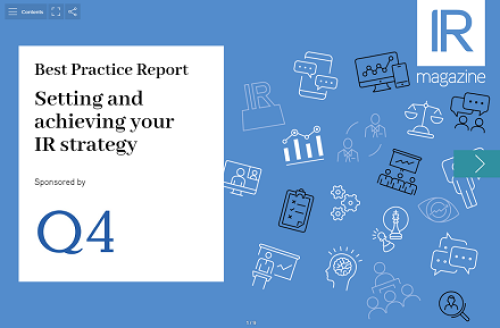How each firm will benefit from KPMG’s acquisition of Makinson Cowell
Despite still waiting for regulatory consent, KPMG’s acquisition of London-based IR firm Makinson Cowell is already having an impact. ‘It took us 21 years to get our first client in Australia,’ says Bob Cowell, founding partner at Makinson Cowell. Since teaming up with KPMG, Makinson Cowell has already pitched to a ‘new, major Australian company,’ Cowell adds. ‘That’s come from KPMG’s Australian team – and we haven’t even completed our deal yet.’
Since setting up business in 1989, Makinson Cowell has operated certain parts of its business ‘on a shoestring’. While the firm has a team of 70 across Europe and the US, Cowell says operations in Austria and the Netherlands are each run by just one person, there are two people in France and nobody in Australia where the company currently has three clients. Instead, they just ‘run across’ from London. ‘Now we’re going to have the resources available,’ Cowell says.
But it’s not just about money for Makinson Cowell, which can name around 40 percent of the FTSE 100 as clients, as well as 20 more FTSE 250 firms and a clutch of overseas companies. It has been approached for deals and acquisitions in the past, explains Cowell, but none of the previous offers ticked the right boxes.
David Webster, the company’s chairman – formerly of InterContinental Hotels and Safeway – had previously set out three criteria for any potential takeovers. ‘First, whatever we do, if we do anything, it’s got to be good for clients,’ says Cowell. ‘Second, it’s got to be good for staff because we’ve got a lot of long-serving, loyal staff here and third, obviously it has to be good for the shareholders. This is the first time anybody’s approached us where we thought we could tick all three boxes.’
Independent advice
So Makinson Cowell is getting the right deal for its clients, staff and shareholders, as well as gaining the resources it needs to push ahead. But what is KMPG getting out of the acquisition, reported by media to be worth £5 mn ($8 mn) upfront with up to £10 mn more deferred.
Tom Franks, global head of KPMG’s corporate finance business, who will chair the company’s new capital advisory group, says while reported details of the acquisition are ‘not a million miles away’ they are also ‘not completely accurate.’
KPMG has two reasons for snapping up Makinson Cowell, he adds, citing Friday’s report on tax avoidance by the Commons’ Public Accounts Committee, which called for a ban on ‘insider’ tax accountants working in government, as an example of the deal’s good timing.
‘How we – one of the Big Four – act and what we do is no longer the preserve of us and our clients,’ he explains. ‘There’s a much wider stakeholder group interested in [what we do] and interested in the capital markets. We’ve felt for some time that our contacts with the investor group in general and the people invested in our clients hasn’t been good enough. Makinson Cowell gives us an opportunity to get us much closer to that group and to understand its views on our clients and their views on the capital markets.’
And there’s a second reason, too. ‘As the capital markets have developed, we have been told increasingly by our clients that there is a need for advice that is independent from the sources of finance – not only on the debt side, which we’ve been doing for some time, but also on the equity side,’ says Franks, who adds that KPMG has found the perfect partner in Makinson Cowell.
Part of Makinson Cowell’s attraction is its reputation. ‘The brand is hugely valued out there,’ says Franks, ‘whereas nobody associates KPMG in any way with investor relations, so we absolutely intend to keep the Makinson Cowell brand for the foreseeable future and go to market as Makinson Cowell – although there might be a little KPMG logo somewhere up in the corner.’
The future of the firm
Cowell adds that the response from clients to the KPMG deal has been very positive. ‘The first question people have asked is, Are the people who look after me all going to be there? and every single person at Makinson Cowell is going to be moving across to KPMG – so the answer is a resounding yes!’
The second point people make is that now they can see the future of the firm, Cowell adds. With the founders and directors getting on in years, ‘clearly some of those clients have been asking themselves what happens when the old guys aren’t around,’ he explains. But they recognize that now ‘there’s going to be more resources available to us.’
The globalization of share registers coupled with institutions talking about a diminishing role for the sell side and the issue of corporate access all mean IROs are set for a busy year, says Cowell – making the deal well timed for Makinson Cowell as well.
‘When we started the business in 1989 I’m sure most companies didn’t even have somebody who did [IR] in-house; it was between the CEO and the CFO on a very part-time basis,’ Cowell notes. ‘Most major companies now – certainly all FTSE 100 companies – have got one person or a team responsible for that job, and I think it’s going to continue to become more important in the next 12 months.’










